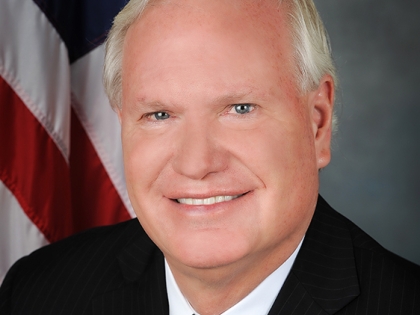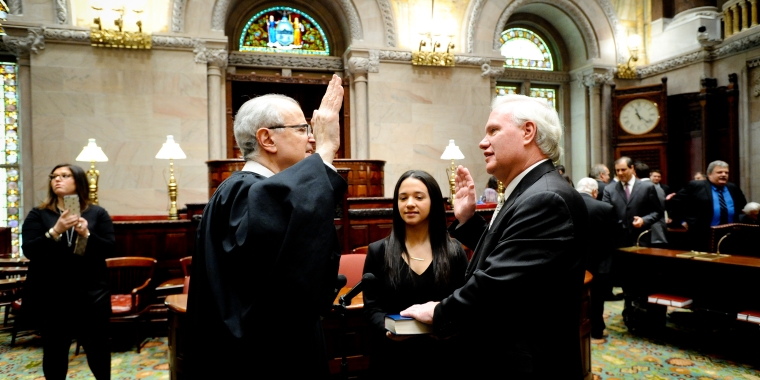
Avella Visits Wild Bird Fund, Sees Possible Tenant for Fort Totten
March 1, 2018
New York, NY – Last week, State Senator Tony Avella visited the Wild Bird Fund (WBF) in Manhattan to tour their facility and see first hand the incredible work they do caring for and rehabilitating the sick or injured wildlife of New York.
Prior to the visit, Senator Avella sent a letter to the Department of Parks and Recreation (DPR) about the possibility of the WBF—who is looking to expand—opening a new location on Fort Totten. WBF’s main location is located on the Upper West Side.
The mission of WBF is to provide medical care and rehabilitation for native and migrant wildlife so they can be released back to the wild and to educate New Yorkers about the rich diversity of the city’s wildlife and how to help it thrive.
“My visit to the Wild Bird Fund was both educational and informative about how they care for the animals. The work they do in our city is unparalleled and I believe that Queens is a perfect location for the fund. If the Wild Bird Fund was able to open up a satellite location on Fort Totten it would be not only great for the Fund, Fort Totten, and the Queens community as a whole but for the animals as well. I believe that this location is very appropriate for the Wild Bird Fund to call home in Queens,” said Senator Avella.
Founded in 2005, Wild Bird Fund is the only wildlife rehabilitation facility serving New York City’s eight million people and 50,000 acres of parks and open space. Ninety percent of the sick, injured, or orphaned wildlife brought to us for treatment have been adversely impacted by human activity. WBF is dedicated to restoring to health and to the wild the thousands of damaged birds and small mammals arriving at our doorstep each year.
After operating out of a private home for seven years, WBF opened its street-level rehabilitation and education center on Manhattan’s Upper West Side in June 2012. Until then, New York City had been the only major US city without a wildlife rehabilitation center despite the fact that the city teems with wildlife. Our city is part of the Atlantic Flyway, a major US migratory route for birds. Our parks, open spaces, and fresh, salt, and estuarial bodies of water provide nesting sites and migratory stopovers to more than 355 species of birds—nearly half of all North American bird species—as well as home to many types of mammals and reptiles.
Since WBF has filled a void and become an essential component of the city’s animal care services, they have been able to save thousands of animals from unwarranted euthanasia or a painful death on the city’s streets. WBF has treated over 20,000 birds since opening our doors in 2012. They expect to treat more than 7,000 patients in 2018. They have never had to turn away a patient and we would like it to stay that way.
Share this Article or Press Release
Newsroom
Go to NewsroomSenator Tony Avella is Sworn in for Third Term
January 8, 2015

Daily News: Queens pol wants spa shut down after patron's death
December 31, 2014